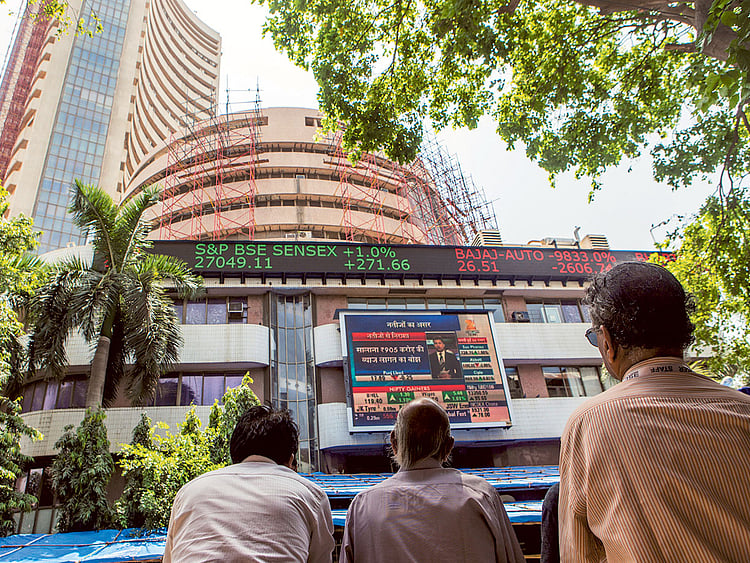Emerging markets eye long-term implications of COVID-19
First wave of infections still pose a threat for key markets, Hong Kong prospects dim

Also In This Package
The next Dh50m plus homes take their spots in Dubai
Kuwait re-opens malls and shopping centres
Mickey Mouse fans over the moon as Tokyo Disney reopens
Hellcat Redeye is the fastest, most powerful saloon!
Photos: Global corporates quit advertising on Facebook
Final slide complete on One Za'abeel's The Link
Dubai: Virus-induced short-term pain was turning into long-term worry for several key emerging markets as a surge in new coronavirus infections posed a threat.
“Much of Latin America, South Africa, and parts of Asia – notably India and the Philippines – are still struggling to contain their first waves of coronavirus,” cautioned Edward Glossop, an Emerging Markets Economist at Capital Economics.
Also Read
Photos: Domestic tourists flock to Saudi Arabia's Rijal AlmaaPhotos: Gazans get first taste of coffee-to-your-doorPhotos: Teddy bears help to maintian social distancing at a Mexican restaurantPhotos: Passion for purple revives ancient dye in Tunisia“And while policymakers in these countries have generally eased lockdowns over the past few months, our data suggest that recoveries appear to be losing some momentum.”
Bonds, currencies, stocks rally
Emerging-market bonds, currencies, and shares have rallied strongly since plumbing dramatic depths in March, thanks to a determined effort by the Federal Reserve, the US central bank, to allay financial stress at home by relieving a shortage of dollars worldwide.
Also Read
Emerging market stocks, currencies decline as Fed euphoria wears offOECD cuts world growth outlook, warns on emerging marketsEmerging markets stocks squeezed by global growth and commodity worriesEmerging stocks drop as China halts share trading after plungeEmerging markets set for $448b outflows this year -IIFBearishness on emerging markets at record levelsThe MSCI’s index for emerging market currencies was up 1.5 per cent in July, as confidence eroded in the world’s reserve currency.
A weaker US currency and excess liquidity stemming from stimulus packages in developed markets have boosted buying interest in emerging market currencies.
Risk-on mood exasperates
Further supporting the risk-on mood was data which showed China’s factories stepped up activity in July for a fifth straight month on improving prospects for electrical and pharmaceutical goods.
Stocks in the developing world were set to clock their biggest gains since April on improving economic indicators and global stimulus steps, but caution prevailed due to surge in COVID-19 cases in hotspots including Brazil, India and Russia.
“To compound matters, there are now growing fears of second waves in the likes of China, Vietnam and Hong Kong,” Glossop further noted. “The number of new cases is still very small in China and policymakers have proven adept at quashing localised outbreaks.”
New worries creep in
“But the outbreak in Hong Kong is more severe and will hit its recovery, and a continued rise in cases in Vietnam is a key risk to our above-consensus growth forecast,” Glossop warned.
Several economists have downgraded their economic forecasts for Hong Kong as the semi-autonomous Chinese territory experiences a surge in coronavirus cases. The uptick in numbers forced authorities to impose stricter social-distancing measures this week.
Hong Kong said last week that advance estimates showed its economy shrank by 9 per cent in the second quarter compared to a year ago. That’s the city’s fourth consecutive quarter of year-on-year contraction, according to official data.
HK economic prospects dampen
The government said in a statement that the pandemic remains “a key threat” to the global economy and a renewed outbreak locally “clouded the near-term outlook for domestic economic activity.”
Capital Economics forecast an 8 per cent contraction in the Hong Kong economy this year — close to doubling their previous projection of a 4.5 per cent contraction. The latest downward revision is also worse than the government’s official forecast for a 4 per cent to 7 per cent contraction in 2020.
In addition to Capital Economics, Citi also downgraded its forecast for Hong Kong and predicted a full-year economic contraction of 6.3 per cent compared to 5.5 per cent previously.
Sign up for the Daily Briefing
Get the latest news and updates straight to your inbox
Network Links
GN StoreDownload our app
© Al Nisr Publishing LLC 2026. All rights reserved.